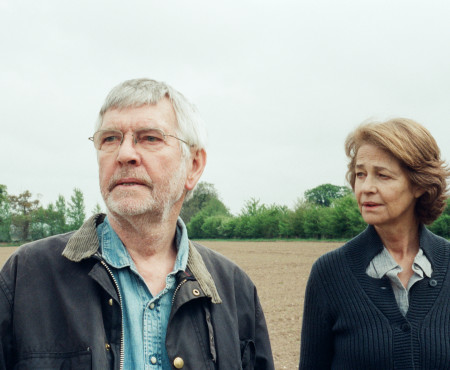Oh what an experience and film Viola is. With each passing second, the elusive mystery of its text swirls in and around us as it emits a delirious scent of experimental playfulness. The film was directed by young Argentinian auteur Matías Piñeiro, whose brief body of work up to this point has mostly gone unnoticed by this reviewer. With Viola, the 31-year-old filmmaker has crafted a work of honest poetry, and while not always wholly accessible (part of the film’s charm), Viola resembles a clear marking of artistic profoundness: a cinema of endless possibility.
Viola runs only 65 minutes long, featuring hymns of candid expression and dancing revelation; its tactful sneakiness and willingness to reverberate is found in its fable-like moral glare. Almost defiantly free of some clear definable form, the unfurling of feeling and emotion within Viola is tied to Piñeiro’s probing of the “life as a grand stage” model. While the first 10-15 minutes of Viola can come across as quite trying, the quotidian shifting of this world is uncanny, producing an endless aroma of repetition and grace. The film is largely a riff on Shakespeare’s Twelfth Night, centering on a troupe of young female actors and their seemingly endless musings on romance and love. Comprised of a mix of 7 plays, the text of Twelfth Night and the drama of Viola eventually shift backstage as the narrative leaves us floating alongside these beautiful actresses and their wide collection of insights and revelations.
At first blush, the plotting resembles some sort of connect the dots interplay, almost as if the sun were partially blocking our direct view of the spirit of the stage and its extended transcendence. These women (and their roles as actors) are in flux together as their insights travel from one scene to the next, an act of rigorous technique on Piñeiro’s behalf. Despite its meager runtime and introductory slenderness, the world of Viola is rich with mystery and complexity; its earnestness and sense of expression is both miraculously present and fleeting all at once. While the physical presence of the titular girl is not even acknowledged until about the halfway mark, the universal skipping around of the narrative is one of rousing conceit.
The film essentially starts with the play and switches gears to focus on Viola (María Villar), whose existence seems indirectly connected to those of said acting troupe. Viola and her boyfriend run a business of what appears to be the selling of bootleg movies. One of her random bike treks throughout the city brings her into contact with the actresses from the film’s first half; this signifies some grand movement from Piñeiro (who also wrote the script), one of rhythmic acuteness – call it a divine linking of some circular awareness between Viola’s small group of characters.
Limited to just a handful of scenes, the structure refuses to play out traditionally as most of Viola’s aesthetic is one of flowing navigation: a recurring exploration of faces and their quoted Shakespearean text, one which frequently overlaps and bumps into the film’s original discourse. Numerous long takes reveal an impassioned wherewithal for these characters to never stray from. Whether Piñeiro has fashioned Viola to come across as a shared dream of the stage and its many facets remains to be seen, but for a film of such literal minuteness (again, running just over an hour), there are worlds of brimming intimacy residing here. A character speaks of “a whole new text to learn,” referring of course to the fluctuating nature of the stage and to her latest assignment; Viola is this very idea wrapped up inside layers upon layers of thematic richness. The film ends with a final concrete discovery as one of the women communicates her sorrow via voice-over. The note that Viola concludes on isn’t one of abrupt melancholy, but an insert ensuring us and these characters that life does indeed continue on after the black veil of the stage (and life) slips away.





















One thought on “‘Viola’ Resembles A Clear Marking of Artistic Profoundness from Director Matías Piñeiro”
Pingback: Viola | serene cinema